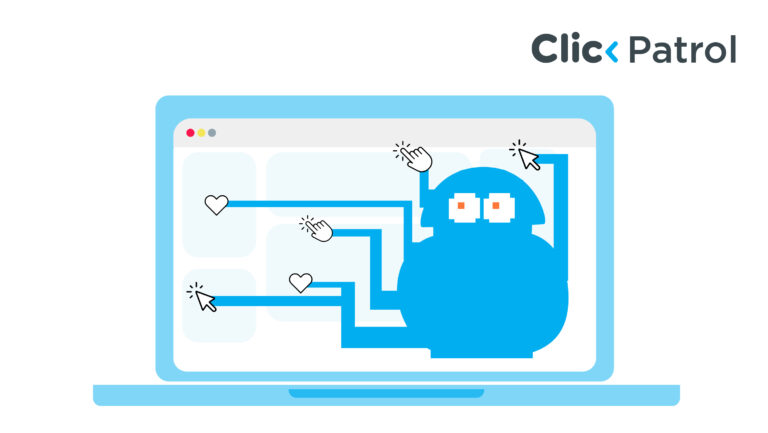
Affiliate Fraud Protection: How to Safeguard Your Earnings and Reputation
Abisola Tanzako | Mar 18, 2025

Table of Contents
- Understanding affiliate protection
- Top Affiliate fraud scams and how they work
- 1. Affiliates fraud
- 2. Cookie stuffing
- 3. Trademark infringement and brand bidding
- 4. Commission theft
- 5. Unethical competitor practices
- Top techniques for safeguarding your affiliate company
- 1. Make use of secure affiliate links
- 2. Track click behavior and traffic
- 3. Adhere to affiliate guidelines
- 4. Keep your affiliate accounts safe
- 5. Monitor and verify commissions
- Affiliate protection tools
- Ethical and legal aspects of affiliate marketing
- How to spot and report affiliate fraud in your network
- How to report affiliate fraud
- Protecting your affiliate business from fraud
Affiliate marketing fraud costs businesses an estimated $1.4 billion annually (Statista, 2023).
Affiliates invest a lot of time, money, and effort in increasing traffic and sales, but many are unaware of the dangers of commission theft, affiliate fraud, and unethical behavior.
Affiliate protection is crucial for safeguarding earnings, maintaining credibility, and ensuring long-term success. This guide explains typical affiliate fraud schemes, risks, and best practices for protecting earnings.
Understanding affiliate protection
Affiliate marketing is a performance-based model where affiliates earn commissions by promoting products or services. However, as the industry grows, so do the risks of fraud, cookie stuffing, brand hijacking, and unethical competition.
Affiliate fraud statistics:
Affiliate fraud statistics include:
- According to Statista, 17% of all internet ad traffic is fake, resulting in billions of dollars in yearly losses.
- According to the Cheq Report, affiliate fraud costs companies more than $1.4 billion annually.
- At some time in their careers, 40% of affiliate marketers have been victims of commission theft.
- Neglecting to protect your affiliate company may result in lost profits, legal issues, and even account suspension from well-known networks such as ShareASale, CJ Affiliate, and Amazon Associates.
Top Affiliate fraud scams and how they work
Understanding the hazards and taking precautions are essential to creating a safe and long-lasting affiliate company.
1. Affiliates fraud
Fraudulent individuals who exploit the system to claim commissions they did not earn are committing affiliate fraud. This may consist of:
- Fake conversions or leads: Using bots to create phony sign-ups.
- Inflating clicks without real user interest is known as “click fraud.”
- Stolen traffic: Using black-hat techniques to reroute legitimate traffic.
2. Cookie stuffing
Cookie stuffing occurs when tracking cookies are pushed onto a user’s device against their will. Dishonest affiliates employ this strategy to steal commissions from other trustworthy marketers. Example: An unethical marketer inserts affiliate cookies into a visitor’s browser without the visitor’s knowledge. Even if the scammer didn’t initiate the sale, the scammer receives a commission if the visitor goes on to make a purchase.
3. Trademark infringement and brand bidding
Some affiliates outrank authorized merchants on Google Ads by bidding on unapproved brands. This may result in:
- Legal repercussions for trademark infringement.
- Affiliate networks suspend accounts.
- Harm to the brand’s and affiliates’ reputations.
4. Commission theft
Affiliate networks occasionally reject or reduce commissions due to invalid purchases, customer cancellations, or duplicate conversions. Some brands also change commission rates retrospectively without informing affiliates.
5. Unethical competitor practices
A few dishonest affiliates attempt to undermine competition by:
- Reporting fictitious infractions by reputable affiliates.
- Search engines are being overloaded with false negative reviews.
- Copying content or stealing marketing strategies.
Top techniques for safeguarding your affiliate company
Top techniques for safeguarding your affiliate company include:
1. Make use of secure affiliate links
To secure your affiliate links, do the following:
- Use link-cloaking services such as ThirstyAffiliates or Pretty Links
- Put SSL encryption in place to stop hijacking
- Consistently check for unauthorized redirects.
2. Track click behavior and traffic
Patterns are frequently left by fraudulent behavior. Analytics tools like Google Analytics track engagement rates and traffic sources.
- Voluum: Spot anomalous surges or click fraud.
- ClickCease: Stop invalid traffic and bot clicks.
3. Adhere to affiliate guidelines
Affiliate networks are subject to strict rules and regulations. Policy violations may result in commission loss and suspensions. Make sure you:
- Report affiliate relationships by FTC regulations.
- Steer clear of misleading marketing techniques.
- Create unique content rather than steal from retailers.
4. Keep your affiliate accounts safe
To stop unwanted access:
- Turn on two-factor authentication (2FA)
- Make use of strong, one-of-a-kind passwords.
- Check payment information frequently for unusual behavior.
5. Monitor and verify commissions
To guarantee accurate tracking, audit your affiliate revenues regularly using tools like:
- Affluent.io aggregates earnings from several networks.
- Everflow: Identifies fraudulent transactions.
- AffJet: Assists in tracking down missed commissions.
Affiliate protection tools
Best PPC fraud prevention and tracking tools include
1. ClickPatrol
- Key features: Blocks bot clicks, prevents fraud
- Best for: PPC affiliates, ad fraud prevention
- Pricing: Starts at 59€/ Month
2. ClickCease
- Key features: Blocks bot clicks, prevents fraud
- Best for: PPC affiliates, ad fraud prevention
- Pricing: Starts at $50/month
3. Voluum
- Key features: AI-based tracking & fraud detection
- Best for: High-volume affiliates
- Pricing: Starts at $69/month
4. Affluent.io
- Key features: Multi-network commission tracking
- Best for: Advanced affiliates
- Pricing: Free & Paid plans
5. Everflow
- Key features: Fraud detection & analytics
- Best for: Large affiliate businesses
- Pricing: Custom pricing
By reducing risks, monitoring commissions, and spotting fraudulent behavior, these tools help keep your affiliate company safe.
Ethical and legal aspects of affiliate marketing
Global regulations must be followed in the legal environment where affiliate marketing operates.
1. Compliance with FTC disclosure: The Federal Trade Commission (FTC) requires affiliates to disclose their brand relationships. Failure to comply may result in heavy fines and bans.
Best practices include:
- Using disclaimer statements such as “This post contains affiliate links,” I might receive a commission at no additional expense to you.
- Disclosures should be positioned above the fold before consumers scroll.
- Speaking clearly and without legalese.
2. Data privacy laws and the GDPR: Affiliates that aim to reach European audiences must comply with the General Data Protection Regulation (GDPR).
- Avoid gathering user information without permission.
- Verify that affiliate networks adhere to GDPR.
- Offer choices for opting out of cookie tracking.
3. Protection of trademarks: Affiliate marketers should refrain from using domain or brand names in unapproved PPC advertisements. Large firms such as Amazon actively prohibit affiliates who violate trademarks.
How to spot and report affiliate fraud in your network
Signs of affiliate fraud include:
- Unusual traffic spikes – sudden, unexplained increases in clicks, impressions, or conversions without a corresponding rise in engagement.
- Low-quality leads – High bounce rates, fake email addresses, or unverifiable customer details.
- Irregular click patterns – Excessive clicks from the same IP address, VPNs, or suspicious locations.
- Discrepancies in conversion rates – High click-through rates but very low conversions, indicating bot traffic.
- Short session durations – Visitors leave a page almost immediately after clicking an affiliate link.
- Brand bidding violations – Affiliates using your brand’s keywords in PPC ads without permission.
- Multiple conversions from one device – Frequent sign-ups or purchases from the same IP or device.
- Fake referrals & stolen traffic – Redirects from suspicious sources or domains mimicking your website.
How to report affiliate fraud
Document the evidence by gathering logs, screenshots, and analytics reports showing fraudulent activity.
- Use fraud detection tools – Platforms like ClickPatrol, ClickCease, and Voluum help identify fraud.
- Blacklist fraudulent affiliates – Immediately suspend or remove affiliates violating policies.
- Report to ad platforms—If PPC fraud is involved, notify Google Ads, Facebook, or other advertising platforms.
- Inform regulatory bodies – In extreme cases, report fraud to legal authorities or consumer protection agencies.
- Strengthen security measures – Enforce strict vetting, real-time tracking, and regular audits to prevent future fraud.
Protecting your affiliate business from fraud
Affiliate fraud can have serious financial and reputational consequences, but you can protect your earnings and credibility with the right strategies. You can minimize risks and maintain a sustainable affiliate business by staying vigilant, using fraud detection tools, and enforcing strict security measures. Regularly monitoring traffic patterns, verifying commissions, and following legal guidelines will help you stay ahead of fraudsters. Protect your affiliate earnings and start using fraud detection tools today!
FAQs
Q. 1 What are the best affiliate fraud detection tools?
- ClickCease – Blocks bot clicks and prevents fraudulent traffic.
- ClickPatrol – Detects and filters fraudulent clicks in affiliate campaigns.
- Voluum – AI-powered tracking and fraud detection for high-volume affiliates.
- Everflow – Advanced fraud detection and analytics for large businesses.
- Affluent.io – Multi-network commission tracking with fraud prevention tools.
Q. 2 How can I prevent the hijacking of my affiliate links?
Use link-cloaking software like Pretty Links or ThirstyAffiliates to safeguard affiliate links and encrypt your website using SSL. Monitoring tools should also be used regularly to check for unauthorized redirects.
Q. 3 How should I respond if I suspect someone is stealing my commissions?
If you observe that commissions are missing:
- Check your reported earnings against your traffic and conversion data.
- Inform the affiliate network of any inconsistencies.
- Utilize tracking solutions such as Everflow or Affluent.io to monitor unpaid commissions.
Q. 4 Are all affiliate programs safe?
Not all affiliate programs are trustworthy. To avoid scams:
- Research the program’s reputation.
- Read the terms and conditions carefully.
- Check if the network is established (e.g., Amazon Associates, ShareASale, CJ Affiliate).





